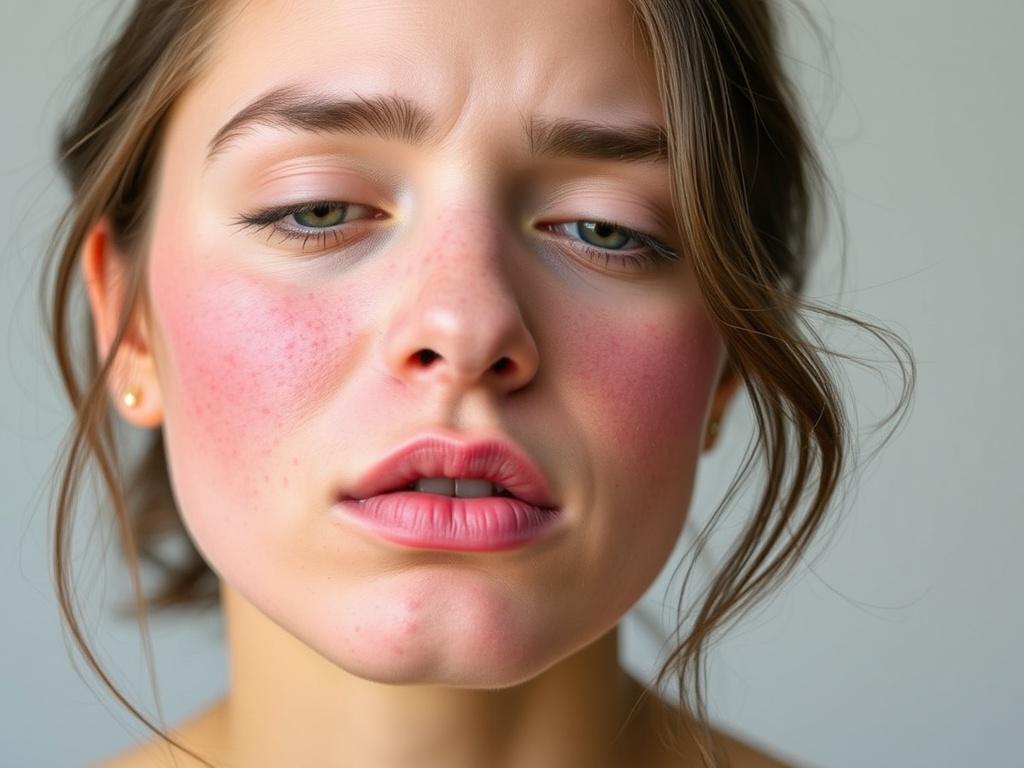Содержание статьи
- 1 Understanding the Connection Between Stress and Acne
- 2 How Stress Affects Your Skin Physiology
- 3 The Psychological Toll of Acne and Stress
- 4 Effective Stress-Reducing Strategies to Improve Acne
- 5 Skincare Routines That Support Stress-Affected Skin
- 6 The Role of Professional Help in Managing Stress and Acne
- 7 Myths and Facts About Stress and Acne
- 8 Everyday Habits to Minimize Stress-Related Acne
- 9 How Diet Influences Stress and Acne
- 10 Tracking Your Skin and Stress to Break the Cycle
- 11 Conclusion
Understanding the Connection Between Stress and Acne
We’ve all heard the phrase, “stress causes breakouts,” but what’s really going on beneath the surface? Typically, acne is thought to be triggered by hormones, diet, and hygiene habits, but stress plays a surprisingly significant role. When your body experiences stress, it responds by releasing hormones like cortisol, which can directly influence your skin’s behavior. These hormones stimulate the sebaceous glands, leading to increased oil production—one of the primary culprits behind acne. The extra oil clogs pores, providing a perfect environment for acne-causing bacteria to thrive.
Moreover, stress weakens your immune system, making it harder for your body to fight off the bacteria and heal existing blemishes. It also triggers inflammation throughout your body, which often shows up as redness and swelling on the skin. This creates a vicious cycle: breakouts cause stress, and stress worsens breakouts. When you understand this connection, it becomes clear that managing stress is a crucial part of controlling acne.
How Stress Affects Your Skin Physiology
Stress activates the hypothalamic-pituitary-adrenal (HPA) axis—a complex set of interactions among glands in your brain and body. This activation leads to the production of cortisol and adrenaline, crucial for managing short bursts of stress. However, chronic stress keeps these hormones elevated, which leads to prolonged oil secretion and inflammation in the skin.
Here’s a closer look at what happens:
- Increased Sebum Production: Cortisol tells your skin’s oil glands to go into overdrive.
- Inflammation: Stress triggers inflammatory cytokines, worsening skin redness and irritation.
- Immune Suppression: Reduced immune function delays healing and allows acne bacteria to multiply.
- Behavioral Changes: Stress often prompts unhealthy habits like touching the face or neglecting skincare routines.
By understanding these physiological changes, it’s easier to see how stress management must be part of your acne treatment plan.
The Psychological Toll of Acne and Stress
Living with acne can be deeply frustrating and stressful, especially when breakouts affect your confidence and social interactions. This psychological toll often worsens the problem because stress-induced hormones fuel the acne even more. Many people fall trapped in an emotional cycle where they feel anxious, embarrassed, or depressed about their skin, which leads to further stress and more breakouts.
It’s important to acknowledge this emotional aspect because treating acne isn’t only about the skin—it’s about nurturing your mental health too. When you improve how you cope with stress, you may find your skin responds positively, enhancing your self-esteem and overall wellbeing.
Effective Stress-Reducing Strategies to Improve Acne

Breaking the cycle of stress and acne isn’t just about skin products; it’s about lifestyle changes that reduce stress levels. Here are several proven strategies to help you manage stress and potentially clear your skin:
| Stress Management Technique | How It Helps Acne |
|---|---|
| Mindfulness Meditation | Reduces cortisol levels and calms the nervous system, helping to lower inflammation and oil production. |
| Regular Exercise | Boosts endorphins that improve mood, promotes circulation, and supports healthier skin. |
| Deep Breathing Exercises | Activates the parasympathetic nervous system, reducing stress hormone release. |
| Adequate Sleep | Allows skin to repair overnight and helps balance hormone levels. |
| Balanced Diet | Supports overall skin health by reducing processed foods that can exacerbate acne. |
By incorporating at least a few of these into your daily routine, you can start to see improvements not only in your stress levels but also in your skin condition.
Skincare Routines That Support Stress-Affected Skin
When your skin is dealing with the effects of stress, a gentle but consistent skincare routine is essential. Anything too harsh can inflame already sensitive and stressed skin, while skipping care can allow oil and bacteria to accumulate. Here’s a simple but effective routine for stressed, acne-prone skin:
- Cleanse Twice Daily: Use a mild cleanser to remove excess oil and dirt without stripping the skin’s natural barrier.
- Tone: Opt for alcohol-free toners that help balance your skin’s pH and soothe inflammation.
- Treat: Incorporate acne-fighting ingredients like salicylic acid or benzoyl peroxide but start slow to avoid irritation.
- Moisturize: Use lightweight, non-comedogenic moisturizers to maintain hydration and support skin repair.
- Sun Protection: Daily sunscreen reduces inflammation and prevents acne scars from darkening.
Remember to avoid picking or squeezing pimples, especially when you’re stressed, as this can worsen inflammation and lead to scarring.
The Role of Professional Help in Managing Stress and Acne
Sometimes, managing stress and acne on your own can feel overwhelming. If your breakouts are severe or persistent, and stress seems unmanageable, it might be time to seek professional support. Dermatologists can provide targeted acne treatments that reduce inflammation and control bacteria more effectively than over-the-counter options. Likewise, mental health professionals can offer therapies such as cognitive-behavioral therapy (CBT) to help you develop healthier coping mechanisms for stress.
Working with professionals allows you to approach acne treatment holistically, combining medical intervention with emotional and psychological support to break the stress-acne cycle more effectively.
Myths and Facts About Stress and Acne
There’s a lot of misinformation floating around about stress and acne. Let’s clear up some common myths:
| Myth | Fact |
|---|---|
| Stress causes acne only in teenagers. | Acne and stress can affect people of all ages. |
| Stress causes acne overnight. | Breakouts related to stress usually develop over days or weeks due to hormonal changes. |
| Only hygiene affects acne, not stress. | While hygiene is important, stress significantly impacts acne through hormonal pathways. |
| Stress-reducing activities don’t affect acne. | Managing stress can improve skin health by reducing inflammation and oil production. |
Knowing the facts helps you avoid frustration and approach your skin care with a realistic mindset.
Everyday Habits to Minimize Stress-Related Acne

In addition to structured stress management practices, some simple everyday habits can make a difference:
- Stay Hydrated: Drinking plenty of water helps flush toxins and supports skin health.
- Avoid Touching Your Face: This prevents transferring bacteria and oils that can clog pores.
- Limit Caffeine and Sugar: Excessive intake can increase anxiety and fuel inflammation.
- Stay Organized: Planning daily tasks can reduce overwhelm and keep stress levels down.
- Connect with Supportive People: Sharing your feelings can relieve stress and foster resilience.
By integrating these habits, you create a foundation that not only calms stress but also improves skin’s resilience to acne.
How Diet Influences Stress and Acne
What you eat has a profound impact on both your stress levels and your skin. Certain foods can aggravate acne, especially when combined with stress-induced hormonal fluctuations. For example, diets high in refined sugars and dairy products have been linked to worsening acne. On the other hand, a diet rich in antioxidants, healthy fats, and vitamins can soothe inflammation and support skin health.
Consider including these acne- and stress-friendly foods in your meals:
| Food | Benefit for Acne and Stress |
|---|---|
| Blueberries | Rich in antioxidants that reduce inflammation. |
| Spinach | High in vitamins A and E, promoting skin repair. |
| Fatty Fish (Salmon, Mackerel) | Contains omega-3 fatty acids that calm inflammation. |
| Green Tea | Has polyphenols that reduce stress and skin redness. |
| Nuts and Seeds | Provide essential nutrients that support skin barrier function. |
Balancing your diet can go a long way in controlling both stress and acne symptoms, making it a vital part of your overall strategy.
Tracking Your Skin and Stress to Break the Cycle
A practical way to manage the stress-acne connection is by keeping a journal or using a mobile app to track your skin condition alongside stress levels, diet, sleep, and skincare habits. Over time, this can reveal patterns and triggers that you might not notice otherwise. For example, you may find that breakouts worsen on days when you feel particularly anxious or after poor sleep.
Here’s a simple template you can follow daily:
| Day | Stress Level (1-10) | Diet Highlights | Sleep Quality | Skincare Used | Skin Condition |
|---|---|---|---|---|---|
| Monday | 6 | High sugar intake | 5 hours | Gentle cleanser + moisturizer | Redness, new pimples |
| Tuesday | 3 | Balanced meals | 7 hours | Cleanser + acne treatment | Clearer, less inflamed |
With consistent tracking, you’ll be empowered to make informed adjustments to your lifestyle and treatments.
Conclusion

The relationship between stress and acne is both complex and intimate, weaving together biology, psychology, and daily habits. Understanding that stress doesn’t just make you feel bad but actively worsens your skin can be empowering rather than discouraging. By adopting stress-reducing techniques, maintaining a gentle yet effective skincare routine, making mindful dietary choices, and recognizing the importance of mental health, you set the stage for breaking the cycle of stress and acne. Remember, this journey requires patience and self-compassion, but each positive step brings you closer to healthier skin and a calmer mind. With the right approach, you can take control and reclaim both your complexion and your confidence.


